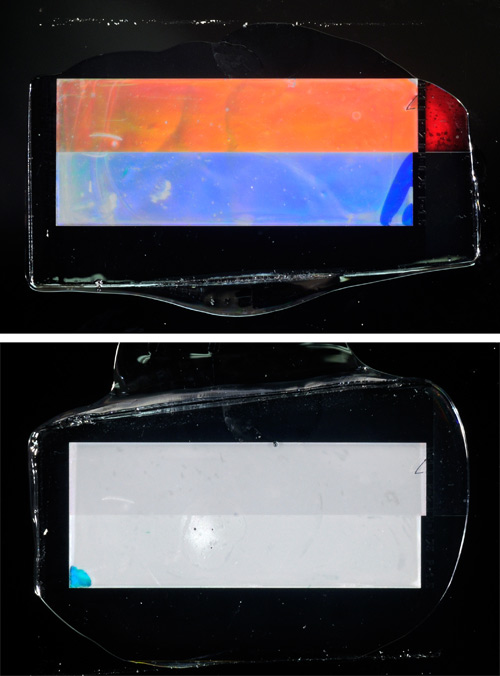The brilliant colors of butterfly wings reveal much about aesthetics, evolution, and engineering. How do their patterns provide protective camouflage in tropical rain forests? How is nanotechnology using the waterproofing properties of butterfly colors to fabricate energy-efficient materials for buildings? In this panel discussion, Penn researchers discuss how their scientific and technological work imitates nature.
Using holographic lithography, Shu Yang and her Penn research team recently developed a material that mimics the iridescent and water-resistant qualities of butterfly wings. Applying this innovation, they developed a superhydrophobic coating that can be sprayed onto any surface. The solution contains nanoscopic particles that add a nearly invisible layer of roughness to a surface. Among other things, this highly water resistant coating is now being used on solar panels to keep them drier, cleaner and more efficient.
In 2004, Shu Yang was named one of the World's Top 100 Innovators Under 35 by MIT Technology Review. In 2006, she received the prestigious Faculty Early Career Development Award from the National Science Foundation. And in 2011, she was selected by the National Academy of Engineering to present at the Japan-America Frontiers of Engineering Symposium. In addition to being widely published, Dr. Yang holds over 20 patents, issued or pending.
Daniel Janzen is an evolutionary ecologist, biologist, and conservationist renowned for his pioneering work in tropical ecology and the conservation of endangered tropical ecosystems throughout the world. A former director of the US Fish and Wildlife Service, he divides his time between Penn, where he teaches biology, and his research and field work in Costa Rica. In Costa Rica, he serves as technical advisor to Area de Conservacion Guanacaste (ACG), a 165,000 hectare government/private hybrid conservation area. He is also president of the Guanacaste Dry Forest Conservation Fund (GDFCF), the US-based NGO for ACG.
He and his wife, Winnie Hallwachs, are currently working to further the CBOL (Consortium for the Barcode of Life) and iBOL (International Barcode of Life) efforts to DNA barcode all species of the world for their identification and species discovery by anyone anywhere at any time. Janzen is also an international authority on the taxonomy and biology of tropical caterpillars, and is a member of the US and the Costa Rican National Academy of Sciences, and recipient of the Crafoord Prize (1984), the Kyoto Prize (1997), and BBVA Prize (2012).
John Tresch is an historian of science and technology. Trained in anthropology and philosophy, his work explores the diversity of the sciences, especially in their interactions with other cultural formations. He focuses on connections between cosmology, experience, social order, and ritual; changing methods, instruments, and disciplinary arrangements in the sciences, arts, and media; and shifting definitions of the rational and real.
His book The Romantic Machine, which is set in France before the revolution of 1848, examines intersections between romanticism, science, industry, and utopian politics. It won the 2013 History of Science Society's Pfizer Award for Outstanding Book and was named one of the Best Books of 2012 by The New Museum in New York. His forthcoming book, Poe's Machinery: Twisted Visions, Incredible Facts, and the Forging of US Science, shows Edgar Allan Poe's technical obsessions in the light of the efforts of scientists to institute authority over knowledge. Tresch is also working on the study of cosmograms as a tool for comparative cosmology, notably in the Anthropocene and the digital age; as well as a study of contemporary neuroscience in its encounters with contemplative practices.
Tresch has held fellowships at Columbia's Society of Fellows in the Humanities, Northwestern, the University of Chicago, the Max Planck Institute for History of Science, the Huntington Library, and the Cullman Center at the New York Public Library.



